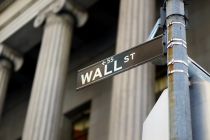Il n'y a pas plus d'erreur de transaction aujourd'hui qu'il n'y en avait hier.
CNBC (texte ci-dessous) a même révisé ses conclusions. Hier, ils affirmaient qu'un trader aurait entré un "B" au lieu d'un "M" donc Billion au lieu de Million. Le problème est que les systèmes de transactions ne sont pas en lettres ... ils sont en chiffres. D'où le ridicule de toute l'affaire.
Et si le système était affecté comme il l'a été par une seule erreur, ça montrerait que les systèmes de trading sont inefficaces, désuet ou inutiles.
Non, c'était un manque de confiance et une quantité énormes de transactions qui ont été déclenchées par la baisse. C'est exactement la même chose que le "dymanic hedging" du 19 octobre 1987 alors que j'étais courtier au détail, bouche bée devant mon écran. Vers 15h30 ce 19 octobre, j'avais appelé mes clients pour leur recommander d'acheter Bell, Bombardier et Banque Royale et de vendre des options d’achats février 1988 couvertes sur ces titres pour un rendement potentiel de 42%.
Ce n’est pas le cas en 2010. En 87 l’économie était solide. Il n’y avait pas de crise de crédit mondiale et 600$ trillions de produits dérivés cachés un peu partout hors-bilan. Comme je le dis toujours, il y aura des rebonds, et violents avec ça .. peut-être même aujourd’hui avant la fermeture (Dow -130 au moment où j’écris). Mais le risque est énorme et ne vaut pas le rendement potentiel dans le contexte actuel.
Ce qui s’est passé hier selon la nouvelle histoire de CNBC :
Computers, Not Human Error, Likely Caused Market Meltdown
MARKET, STOCK MARKET
Posted By: Jeff Cox | CNBC.com
CNBC.com
| 07 May 2010 | 11:53 AM ET
Computerized sell programs triggered by global events—rather than trader error or "fat finger"—appear to have caused Thursday's unprecedented market swing, according market pros who are reconstructing the nearly 1,000-point stock selloff.
These experts think the intensely accelerated electronic trading was sparked by the Greek debt crisis and other events and not a trader who typed a "b" for billion instead of "m" for million in executing a trade on Thursday.
Friday's market volatility seemed only to confirm that investors are afraid of what lies ahead and are wary of the stock market.
"It wasn't a fat finger," said Dave Lutz, managing director of trading at Stifel Nicolaus in Baltimore. "The markets became unglued...Most of it was centered on the fact that currency markets affected the equity markets."
Not everyone is so sure. Authorities are probing the trading activity and looking to see whether a human mistake or manipulation was at play.
But Lutz said his firm was advising clients to sell Friday as evidence mounts of tightening in global credit markets. He considered the market behavior Thursday, though, as "a one-off event" as far as such a dramatic drop goes but warned that the times ahead will be rocky.
In a note released later in the day, Stifel reiterated that the Thursday selloff was about more than human error, and cautioned that it could happen again.
"We believe the electronification of markets and the fragmentation of liquidity—stocks trading simultaneously on many exchanges and alternative execution venues—has enhanced the risk of catastrophic meltdowns of excessive volatility," the firm wrote. "We believe instances like yesterday's 1,000 intra-day point sell-off could become much more common if changes are not implemented."
The movements of the Japanese yen were being closely tracked yesterday, as were the continued weakening of the euro as events unfolded in Greece. The strength of the US dollar—particularly against the yen—also caught attention as flight-to-safety trades increased.
While the exact origin of the selloff may not be known for weeks, the staggering selloff in the Dow came as Greeks stormed the streets in protest against the parliament's acquiescence to austerity demands from the European Union.
Market sources say the confluence of events likely triggered electronic selling programs. As that selling commenced, the human element of the markets quickly evaporated and computerized trading programs wantonly sold stocks at whatever price was available, creating a feeding frenzy.
"A lot of these (electronic trading) models become very sensitive when volatility is high," said Aaron Gurwitz, managing director of research, economics and strategy at Barclays Wealth in New York. "It's possible that a lot of these models got to a point where they got strong reduce-risk signals, that things are not working right."
"In that context," he continued, "even a small glitch, a slightly overweight finger rather than a fat finger, could have triggered a lot of the things that happened....A lot of very substantial traders become very sensitive. There's not that much difference among these models. We've seen this can be a source of potential systemic risk that really does need to be investigated."
More specifically, though, market experts saw the European debt crisis as a major trigger for the selloff. The EU's currency, according to views of hedge fund manager Dennis Gartman and others, is under threat of ultimately failing.
Boris Schlossberg, of GFT Forex, also doubted trader error as the true root of the selloff and asserted that currency markets played a far greater role.
"The currency market was the leader in this whole calamity yesterday because yen is a critical risk-funding currency," Schlossberg said in a CNBC interview. "When it starts to collapse and when there is a lot of (algorithms) that are correlated to the Dow Jones, they started selling S&Ps."
Heads of both the Nasdaq and New York Stock Exchange reported Friday no significant discrepancies in trading activity and defended the operations of their exchanges.
Nasdaq CEO Robert Greifeld echoed sentiment that the market can tumble very quickly when intense fear sets in.
"It's equivalent to what happened back in the day with telephone markets where traders didn't answer the telephone to incoming orders. So we had a situation where the markets soar, the primary market is not responding and it has a disproportionate impact to the psyche of the market," he said in a CNBC interview.
Some traders were hoping to settle back in and put Thursday's events behind them.
"Euro-yen actually reached levels from Sept. 11," Leon Yohai, CEO of currency trading platform ZuluTrade said in an interview from Greece. "The crisis has passed but everybody knows that Europe is not as strong as it used to be."
The results of regulatory probes into Thursday events will be anxiously awaited.
"These guys (regulators) have to take a few weeks to look at this," said Yousef Abbasi, financial desk analyst at Execution Noble in New York. "People understand there was a glitch of some sort and we just have to move on."
© 2010 CNBC.com
URL: http://www.cnbc.com/id/37016385/
.
© 2010 CNBC.com



















